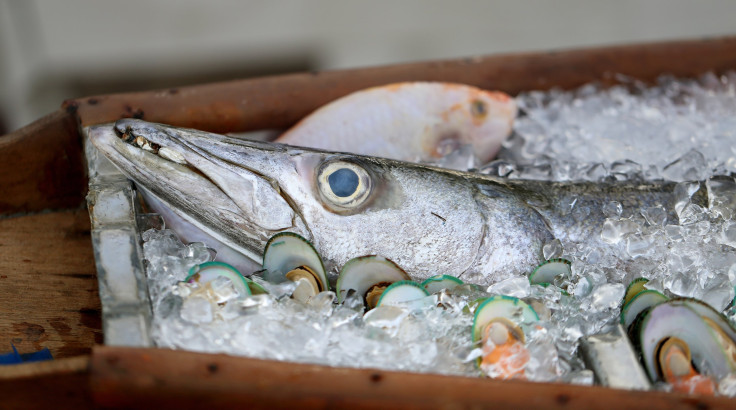Food Poisoning From Fish Is Sickening More People Than Previously Thought: Should Consumers Be Concerned?

Barracuda is eaten grilled, fried, and boiled, but however it's prepared, the sport fish is making more Floridians sick than experts believed possible. Researchers from the University of Florida analyzed poisoning reports and compared results to surveys of more than 5,000 fishermen. The findings, published in the American Journal of Tropical Medicine and Hygiene, revealed fish poisoning is 28 times more common than they previously thought.
"The rate of illness was found to be higher than previously estimated," lead study author Elizabeth Radke, an epidemiologist at the University of Florida’s Emerging Pathogens Institute, wrote in the study. "Areas around Miami and in the Florida Keys are particularly affected. I don't think that people necessarily need to stop eating these other fish, but they need to be aware there is a risk, and if they start feeling sick after eating, they should see a physician."
In the Florida Keys and Bahamas, algae grown in the warm waters produce ciguatera poison. The poisoned algae are eaten by coral reef fish, which then carry the poison on to larger carnivorous fish in one of the most dangerous food chain reactions off land. The poisons commonly cause severe vomiting within three hours of digestion, but are also known to cause pain and tingling in the mouth, hands, feet, and cause weakness in the legs. Most people recover, but others are left with neurological symptoms, such as reverse feelings of hot and cold temperatures to the touch.
Currently, there is no treatment, but only by preventing consumption can fish lovers truly avoid sickness. The highest concentrations of poisons are found in barracudas, but they’re not the only fish consumers in southern Florida should be wary of. Grouper, amberjack, hogfish, snapper, mackerel, and mahi-mahi have all been carriers of the ciguatera poison, which is not affected by cooking or freezing.
“We recommend not eating barracuda at all,” Radke said, “It’s a good idea to be aware that you’re taking a risk. If you get ill, see a doctor, tell them you ate fish, and if you have some fish left, freeze it so it can be tested.”
Hispanics are estimated to be the largest consumers of barracuda, thus making them the group at greatest risk for being poisoned. However, the absolute risk of contracting ciguatera poisoning still remains rare. Fish caught in colder northern waters are less likely to carry the poison because the algae only grow and flourish in warmer waters.
Source: Radke EG, Reich A and Morris JG. Epidemiology of Ciguatera in Florida. American Journal of Tropical Medicine and Hygiene. 2015.
Published by Medicaldaily.com



























